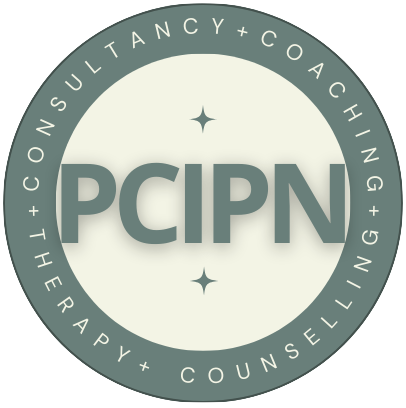our unique programme
This is the only supervision training programme that equips you to supervise those who integrate various counselling and psychotherapy practices as well as coaching. All the facilitators on the training worked previously as supervisors and tutors on the MSc Integrative Counselling and Coaching programme.
details at a glance
Course Fee:
£2,148 (See payment plans for options)
Duration:
10 weeks over 5 months
Time:
Saturdays between 9.30 – 5.30
Delivery:
Live Online Classes
Number of Participants:
15 per group
Get in touch
info@pcipn.org
why train to be a supervisor
I am amazed at how much supervising others affects my own practice. It adds another dimension to my work which I find very stimulating.
Dr Nash Popovic
To book your space or find out more email us now:
training benefits
- Expand your portfolio by becoming a supervisor
- Supplement your income by supervising other integrative practitioners and students
- This training can be particularly of benefit for those who are working towards accreditation.
- This training is firmly focused on equipping you to help your future supervisees to produce results and make their practice as effective as possible.
Why train with us?
The niche
Integrative Counselling and Coaching is one of the fastest-growing approaches in the field of one-to-one practices, but there is still a gap in the market for supervisors who are familiar with this way of working.
our tutors
All our tutors were supervisors on the PGDip/MSc Integrative Counselling and Coaching Programme – the first post-graduate programme of its kind in the world
effectiveness
As integrative practice has the potential to benefit clients more than single approaches, integrative supervision has the potential to greatly benefit the work of supervisees.
JOIN THE NETWORK
After successfully completing the training, you will be included in the Directory of Integrative Supervisors and add our logo to your webpage/listing.
- How to help your supervisee without analysing the client. It’s easy in supervision to slip into discussing clients, analysing what’s wrong with them, where their issues stem from, their attachment styles, or their personality types. While this can make the supervisor and supervisee feel engaged and professional, it often does little to actually help the client. Even if your analysis is correct, it may not effectively move the client towards their goals. Moreover, as the supervisor does not have first-hand experience with the client, these conjectures are more likely to be distorted. Supervision can offer more by focusing on the process of helping the client get where they want to be, which entails viewing the relationship and client as processes, too. You will learn how to do this.
- How to recognize blind spots in your supervisee’s work. It’s common to identify blind spots in hindsight – when it’s too late. You will learn how to help supervisees recognize them on time when they can do something about them.
- How to listen, give feedback, and make suggestions without triggering your supervisee’s defence mechanisms, and how to create an atmosphere where supervisees feel safe and comfortable to open up and be honest.
- How to keep the focus in supervision sessions and help the supervisees keep the focus in sessions with their clients.
- How to help supervisees manage their own conflicts and barriers to productive work, such as a lack of confidence as well as overconfidence, not liking the client or liking/sympathising with them too much, being triggered or identifying with the client, and feeling stuck or rushing to help.
- How supervisees can help clients find their way forward without being overly directive.
- How to ensure your supervisee receives consistent support even if you only see them once or twice a month.
WHAT YOU WILL LEARN
What’s Included
the 10 live online days (all on Saturdays)
each of which builds on the previous to provide embedded and comprehensive
skills and knowledge of integrative supervision.
one-to-one monthly supervision consultancy (lasting one hour)
You will have an opportunity to discuss your work with supervisees with a member of our team at one hour one-to-to session each month for the duration of the course.
With no more than 15 participants per course
the training sessions provide an intimate
experience in which you’ll get to know and work with your peers and course leaders.
The sessions are highly participatory to create a fully interactive environment with breakouts and whole group discussions.
The sessions are made up of:
- Topic-based course content introduced by the facilitator
- Group discussion
- Supervision skills practice
- Working in small groups and triads

“Over the course of ten live sessions you will acquire and build on the knowledge and skills necessary to effective integrative supervision.”
– Julia Kantic
ten days training over five months
Live online classes, Saturdays, 15 participants per group
one
FOUNDATIONS OF INTEGRATIVE SUPERVISION
The theoretical foundation of supervision. Integrative Supervision.
two
ETHICS AND FACILITATION
Ethical and professional practice. Facilitation of supervision.
three
RELATIONSHIP, AIMS, and structure
Relational skills, qualities and behaviours. Setting direction and Structure.
four
FACILITATION OF INTEGRATIVE PRACTICE
The focus. Working with ‘gaps’.
five
WORKING WITH THE INNER WORLD OF THE CLIENT
Working with internal conflicts and barriers. Working with the roots of clients’ issues
six
MAKING A CHANGE
Facilitating clients to achieve their goals. Helping clients to make changes.
seven
SUSTAINING A CHANGE AND RELATIONSHIP
Supporting clients in sustaining the change. The supervisory relationship.
eight
ONLINE/PHONE AND GROUP SUPERVISION
Online and Phone supervision. Group supervision.
nine
ABOUT THE SUPERVISEE
Equality, Diversity and Inclusion. Individual needs of the supervisee.
ten
ABOUT THE SUPERVISor
Supervisor Self-awareness. Professional development of the supervisor.
train to be a supervisor
get certified as a practitioner supervisor
sign up now
criteria for joining
- Have completed your counselling/therapy/integrative counselling and coaching training.
- Membership of a professional body that adheres to
an ethical framework or code of ethics (BACP, UKCP, etc.) - Have completed a minimum of 200 hours of practice (which may include 100 placement hrs during your initial training)
- Have a minimum of two years of post-qualifying experience
- Have appropriate supervision arrangements in place
- Have access to at least two supervisees to meet
the practice hours required for the course (this can be privately arranged)

course fees
£2,148 (inc VAT)
-
This includes all the training, one-to-one tutorials (max 2 per student), supervision and practice groups, assessment, and certification. The fee does not include supervision consultancy (see Requirements), which expense is estimated at about £350 for the duration of the course (or £60-70 per month).
-
Payment can be made in full (10% discount apply) or in 12 interest-free monthly payments (£179p/m). A place on the course is secured with a deposit of £179.
You can change your mind at any time by 18th December 2024, and you will get a full refund.
course dates
April 2026 start
-
- Sat 18 April 26 – whole day, in person or online
- Then two Thursday evenings every months until Feb 2007 (with the break in July and August) – online
- Sat 19 Feb 27 – whole day, inperson or online
certification
80%, and 20 supervision sessions
Requirements
-
Besides completing your assignment, you will need to attend a minimum 80% of the sessions (if you miss more than that, you will be able to catch up with the following cohort at no extra cost.
- BACP also requires that you have 20 supervision sessions and one hour per month of supervision consultancy (supervision of supervision) while working with supervisees. You will have a grace period of one year to complete them. You will receive your certificate as soon as you complete the above course requirements.
meet the training team

Dr Nash Popovic
Tutor
Dr Nash Popovic is the creator of the Personal Consultancy model for one-to-one practices that combines relational approaches with goal-orientated approaches such as CBT and coaching.
In 2014 Nash co-authored book, Personal Consultancy (Routhlage, 2014). Based on Personal Consultancy, in 2015 he started at the University of East London, MSc in Integrative Counselling and Coaching, the first programme of its kind in the world.
He is the founder of PCIPN and Integrative Supervision Training as well as the creator of a comprehensive personal development guide, Personal Synthesis (https://www.personalsynthesis.com/).
Nash also works as a Personal Consultant and integrative supervisor in private practice.

Judith Plastow
Tutor
Judith is a practising Psychotherapist and an accredited member of the BACP with over ten years of experience. Her key focus is on workplace well-being, supporting high-potential individuals in overcoming ‘psychological blocks’ and moving closer towards becoming their best selves. She has a particular interest in working with women and worked on the Lewisham Refugee and Migrant Networks Women Together program for five years.
Judith has extensive experience in training and facilitation as well as supervision. She worked as a Senior Lecturer at the University of East London on their pioneering Master’s program in Integrative Counselling and Coaching.

Caroline Ley
Tutor
benefits at a glance
live video lectures
supervised practice
group discussions
assessment
assignments
certification
BACP does not yet accredit supervision training courses, but our course is aligned with the BACP Supervision Competence Framework as well as the BACP Supervision Curriculum, so the certificate can be included in your portfolio for individual accreditation.




